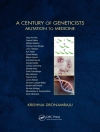The biceps tendon is one of the most challenging anatomic structures to completely understand. Its precise role for shoulder function has yet to be completely defined, and pathologic conditions exist at both its proximal and distal ends. In recent years, the biceps labral complex has been recognized as a common cause of shoulder pain among patients. Accurate diagnosis, utilizing both physical examination and imaging, is crucial to decision-making regarding the most effective treatment. Many controversies exist surrounding the management of biceps pathology with a myriad of potential solutions to consider.
This practical text breaks down the biceps into succinct, digestible portions with expert tips and tricks to help manage bicipital problems in a wide array of patients. Sensibly divided into three thematic sections, it encompasses all aspects of the biceps tendon, including relevant anatomy, diagnosis, imaging, and non-operative management (including rehabilitation and biologic treatments). Surgical management strategies as they pertain to both proximal and distal biceps tendon pathologies will be covered, including both arthroscopic and open tenodesis, transfer, and inlay and onlay fixation methods. A review of associated complications and how to avoid them is likewise described in detail, along with post-surgical rehabilitation techniques to maximize return to play.
Ideal for orthopedic surgeons and sports medicine specialists at all levels,
The Management of Biceps Pathology will be a unique resource for all clinicians facing challenges treating the active patient with shoulder and elbow pain.
İçerik tablosu
Part I: Anatomy, Imaging and Function of the Biceps Tendon.- Anatomy of the biceps tendon: From origin to insertion.- How to Diagnose Biceps Tendon Pathology.- Imaging the biceps tendon at both the shoulder and elbow: What to look out for.- Ultrasound and the Biceps Tendon: Diagnostic and Therapeutic Benefits.- Role of the Biceps Tendon as a Humeral Head Depressor.- The role of the biceps tendon as a humeral head depressor.- The role of the biceps tendon in the overhead athlete.-
Part II: Proximal Biceps Tendon Conditions.- Biceps Tendinopathy: Causes and Solutions to This Problem.- Nonsurgical Management of Proximal Biceps Pathology.- SLAP tears, diagnosis and management.- The incarcerating biceps tendon.- Anterior shoulder pain in the throwing athlete: SLAP repair vs. biceps tenodesis? Or both.- Injuries to the Biceps Pulley.- Managing Biceps Pathology With Rotator Cuff Tears.- Managing Biceps/SLAP Pathology with Associated Shoulder Instability.- Arthroscopic vs. open tenodesis: Which patients need which? .- Inlay Versus Onlay Fixation Methods for Proximal Biceps Tenodesis.- The biceps transfer: A different perspective on treatment.- Complications Following Proximal Biceps Tenodesis.- Post-Operative Rehabilitation: Biceps Tenodesis.-
Part III: Distal Biceps Tendon Conditions.- Management of Partial Thickness Distal Biceps Tears.- Complete Distal Biceps Ruptures.- Methods of fixation for distal biceps repair: What does the evidence show?.- Chronic and Revision Distal Biceps Reconstruction.- Complications of Distal Biceps Tendon Repair.- How to rehab a patient following a distal biceps repair
Yazar hakkında
Anthony A. Romeo MD, Shoulder, Elbow, Sports Medicine, Dupage Medical Group, Westmont, IL, USA
Brandon J. Erickson, MD, Division of Sports Medicine, Rothman Orthopaedic Institute, New York, NY, USA
Justin W. Griffin, MD, Assistant Professor, Eastern Virginia Medical School, Jordan-Young Institute for Orthopedic Surgery and Sports Medicine, Virginia Beach, VA, USA












